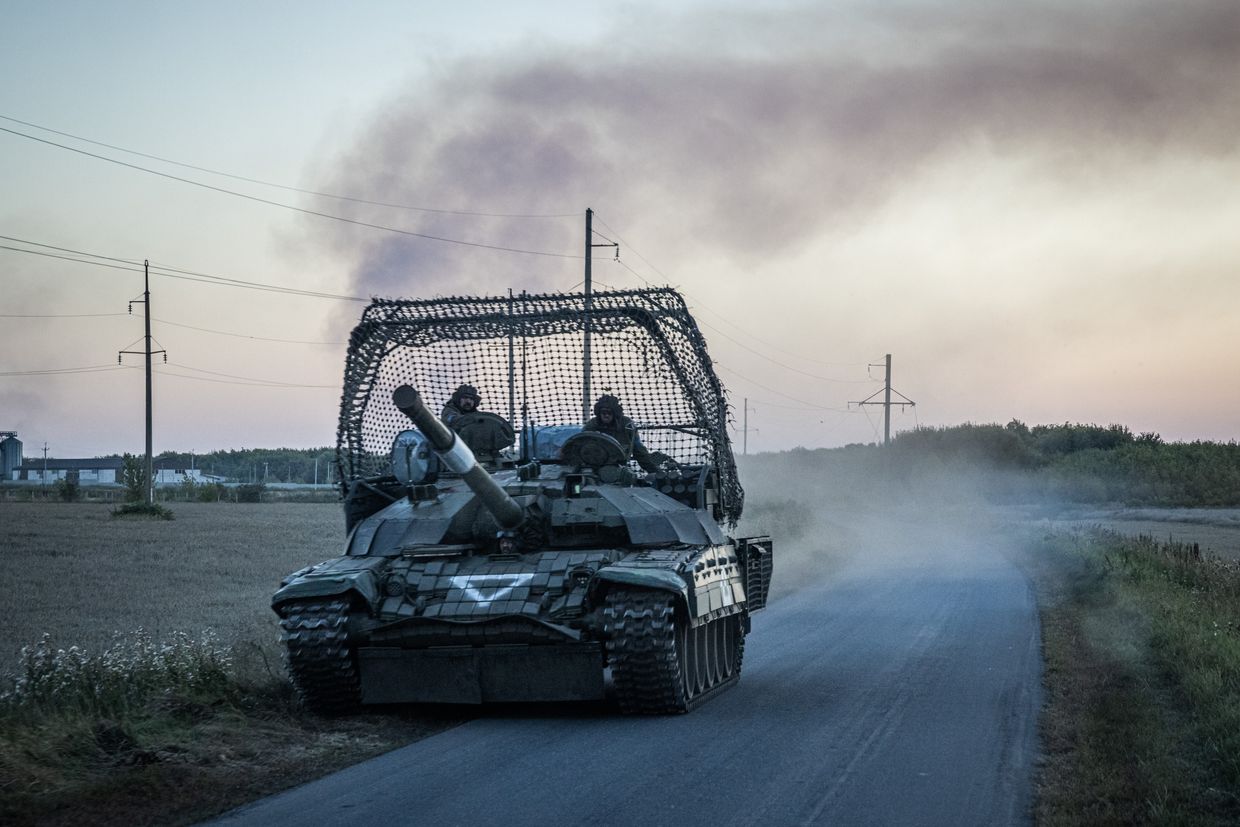'Russia started this war' — British PM Starmer rebuffs Putin's saber-rattling

Russia started the war against Ukraine and can end it right away, U.K. Prime Minister Keir Starmer told reporters on Sept. 12 following Russian leader Vladimir Putin's warnings that the use of Western arms in Russia would draw NATO into war.
Putin's comments came amid growing signs that the U.S. and the U.K. are considering easing restrictions on Ukraine using long-range weapons to strike targets deep inside Russian territory, something Kyiv has requested for months.
The Kremlin's chief said on state TV that such a decision would "mean nothing less than the direct involvement of NATO countries, the U.S. and European states, in the war in Ukraine."
It would mean that "the very essence of the conflict will change" and Moscow "will take appropriate decisions based on the posed threats," he said. Russia has repeatedly set supposed "red lines" on Western assistance for Ukraine, sometimes accompanied by veiled or overt nuclear threats.
Putin has also claimed that the Ukrainian military would not be able to use cutting-edge Western arms without direct assistance from NATO militaries.
Speaking during the flight to Washington for his meeting with U.S. President Joe Biden, Starmer said: "Russia started this conflict. Russia illegally invaded Ukraine. Russia can end this conflict straight away."
"To reiterate, it was Russia who started this in the first place. They caused the conflict; they're the ones who are acting unlawfully," the British prime minister stressed.
Joining the U.K., the EU has also rebuffed Putin's threats. EU spokesperson Peter Stano said that Putin regularly makes false statements and that nothing will change Brussels's stance as long as he continues his illegal war against Ukraine.

Starmer and Biden are expected to discuss long-range strikes during their meeting on Sept. 13, but it is unclear whether the final decision will be made that day.
A source close to President Volodymyr Zelensky told the Kyiv Independent that the Ukrainain president provided a detailed explanation on the need for long-range strikes to American and British top diplomats, Antony Blinken and David Lammy, during their visit to Ukraine on Sept. 11.
Ukraine has received shipments of long-range ATACMS and Storm Shadow missiles from the U.S. and the U.K., but the two countries did not permit their use inside Russian territory so far. Kyiv has repeatedly appealed to its partners to lift the ban and allow Ukraine to counter Russian aerial strikes and ground offensives effectively.
While the Western countries eased restrictions on the use of certain arms just across the border after a Russian offensive in Kharkiv Oblast in May, limits on long-range strikes deep inside Russia remained in place.
Multiple Western outlets, such as Politico and the Guardian, recently wrote that this position may be shifting as U.S. and U.K. officials are preparing plans to ease the restrictions further.
The debate comes at a critical time as Russia is ramping up its pressure along the eastern front while also counterattacking in Kursk Oblast, threatening Ukraine's rare and hard-won gains on Russian soil.
Russia also recently received short-range ballistic missiles from Iran, in addition to those previously provided by North Korea and domestic-made missiles.











